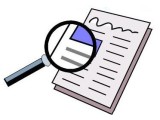National Collegiate Honors Council

National Collegiate Honors Council Monographs: Chapters
Date of this Version
2021
Document Type
Book Chapter
Citation
In: Place, Self, Community: City as Text™ in the Twenty-First Century,Edited by Bernice Braid and Sara E. Quay. National Collegiate Honors Council, 2021.
Abstract
The chapters in this book deal primarily with students’ learning experiences as documented through self-awareness, knowledge acquisition, and behavior. Language makes it possible to communicate these changes to others. This essay, in contrast, will examine learning from the perspective of brain function. The current framework of thinking among neuroscientists, psychologists, and philosophers is that the brain is fully responsible for our minds, and thus studying how the brain functions in molecular, cellular, and systems terms sheds light on all mental processes, including those that are the substrate of learning. A scientific understanding of brain function thus helps to explain the long-term benefits of experiential leaning described by the theorists and practitioners of City as Text™ (CAT).
Learning is the acquisition of knowledge about the world, and in order for that knowledge to be applied to future situations, it has to be stored, recalled, and put to use in a new context. Learning cannot occur without memory, which comprises the multiple processes of information storage and recall.
Included in
Curriculum and Instruction Commons, Curriculum and Social Inquiry Commons, Educational Methods Commons, Higher Education Commons, Higher Education Administration Commons, Liberal Studies Commons, Social and Philosophical Foundations of Education Commons


Comments
© 2021 NCHC.